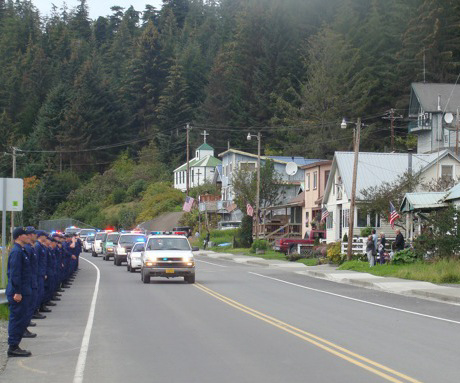
Lawmakers couldn’t agree last year whether to permanently provide health insurance to the survivors of police officers and firefighters who die in the line of duty. Starting next week, they’ll have another chance.
A bill to provide survivors with insurance was among the first bills filed ahead of the legislative session, starting on Jan. 17. Some surviving families have received state-funded insurance in recent years, but it isn’t enshrined in state law.
Rep. Andy Josephson, an Anchorage Democrat, is sponsoring the bill, HB23, and said filing the bill early makes it more likely to be enacted.
“These are folks that feel duty-bound – and have, many of them, since their youth – to participate in high-risk activity for the benefit of the public,” Josephson said. “And they shouldn’t be asked to sacrifice health care for their families when they’ve made the greatest sacrifice.”
Incoming House Minority Leader Charisse Millett, an Anchorage Republican, introduced an identical bill.
Other bills filed ahead of the session include a measure by Sen. Mike Dunleavy, a Wasilla Republican, that would restore full funding to Permanent Fund dividends, and make another PFD payment of about one thousand dollars. And Sen. Bill Wielechowski, an Anchorage Democrat, is seeking to add dividend payments to the state constitution.
Another of Wielechowski’s bills would punish lawmakers who fail to pass a state budget within the first 90 days of the session by denying them salaries and the payments they receive for daily expenses. They could receive their salaries and per diem payments once they passed the budget. It was not clear whether the legislators would receive back payments, and Wielechowski could not be reached for comment.
And Rep. Matt Claman, an Anchorage Democrat, introduced a constitutional amendment to limit the session to 90 days. While state law says sessions last 90 days, the constitution sets the limit at 121 days.
Josephson also introduced a bill to prohibit the state or municipalities from helping the federal government create a registry based on people’s race or religion. He said he’s concerned that President-elect Donald Trump will seek to register Muslims and deport unauthorized immigrants based on their race.
“My view is, this is one of those important moments where somebody has to say, ‘No. No, that is not what we’re going to do,” Josephson said.
Another round of pre-filed bills will be released on Jan. 13.
Andrew Kitchenman is the state government and politics reporter for Alaska Public Media and KTOO in Juneau. Reach him at akitchenman@alaskapublic.org.




